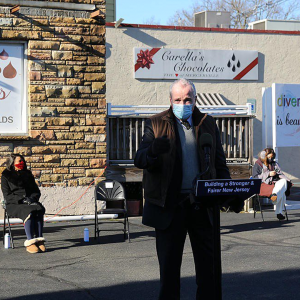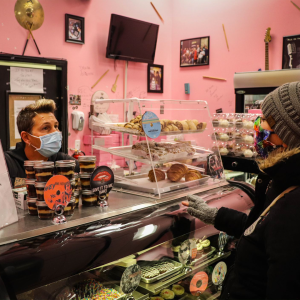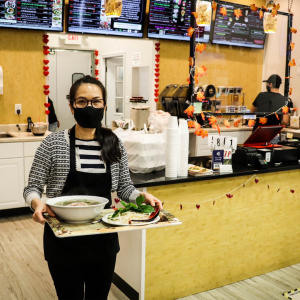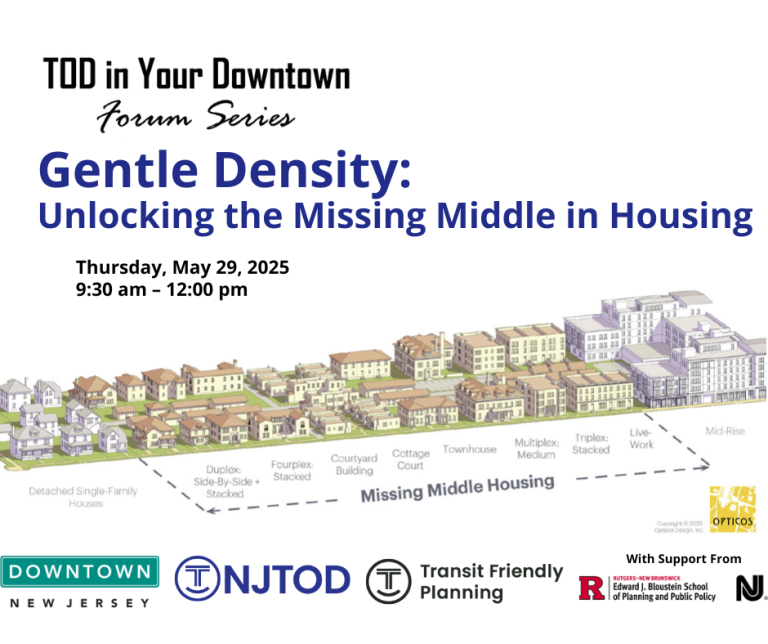NJEDA’s Main Street Recovery Program Sets the Stage for Stronger, Fairer Recovery from COVID-19
Maggie Peters
Program Manager, Small Business Services, New Jersey Economic Development Authority
October 2, 2021
Throughout the COVID-19 pandemic, business owners have faced countless unprecedented challenges. Now, Topical Storm Ida has imposed another burden on New Jersey businesses who have seen their buildings wrecked, facilities flooded, and inventory destroyed.
Governor Phil Murphy has made it a top priority to support communities and businesses that have been impacted by the economic and health challenges the pandemic, and now Tropical Storm Ida, have created. As the State’s primary agency dedicated to driving sustainable, equitable economic growth, the New Jersey Economic Development Authority (NJEDA) has led New Jersey’s economic response to COVID-19 and is administering a new, $10 million Ida Business Assistance Grant Program.
Through a combination of grants, loans, and technical assistance programs, the Authority has approved nearly 90,000 pandemic relief awards totaling more than $608 million, and those numbers continue to grow as more relief resources become available. According to publicly-available data, New Jersey ranks third among states in how much in grants it has distributed to small businesses during the COVID-19 pandemic.
Economic Recovery Act

Governor Phil Murphy signs the New Jersey Economic Recovery Act of 2020 into law at Carella’s Chocolates in Hamilton, NJ. Carella’s Chocolates received COVID-19 relief grants through the NJEDA.
As New Jersey reopens, the NJEDA is shifting its focus to achieving Governor Murphy’s vision for a stronger, fairer recovery, with a particular emphasis on supporting small businesses and communities that have been hit hardest by the health and economic impacts of the pandemic. The guiding light for these recovery efforts is the New Jersey Economic Recovery Act of 2020 (ERA).
Signed in January 2021, the ERA creates a package of programs that includes:
- Tax credits to incentivize job creation, new construction, and revitalization of brownfields and historic properties
- Financial resources for small businesses; support for new supermarkets and healthy food retailers in food desert communities
- New funding opportunities for early-stage companies in New Jersey; and
- Support for the growing film and digital media industry.
Many ERA programs are focused on revitalizing downtowns and main streets in communities of all sizes throughout New Jersey. The Emerge Program incentivizes job creation, the Aspire Program will support new commercial and residential development, and the Brownfield Redevelopment Incentive and Historic Property Reinvestment Program will play a critical role in revitalizing contaminated or abandoned properties into productive community assets.
While these programs help foster vibrant community spaces, the new Main Street Recovery Program will provide the financial boost businesses and nonprofits need to reopen and prepare for long-term success in the aftermath of the pandemic. This $100 million program will fund multiple financial assistance products aimed at supporting the growth and success of New Jersey small businesses.
The first two products created under the Main Street Recovery Program are the Small Business Lease Grant and the Small Business Improvement Grant. These products are aimed at revitalizing downtowns by helping businesses lease street-level space or make investments in improving their façade or space.
Small Business Lease Grant

Confections of a Rockstar in Asbury Park received COVID-19 relief grants through the NJEDA.
The Small Business Lease Grant is a $10 million program that will provide two grants of up to 20 percent of annual lease payments to businesses and nonprofits entering new or amended leases. The first grant will be paid to entities immediately after they are approved for the program and execute the grant agreement, and the second grant will be paid after the first year of the lease.
In order to qualify for the Small Business Lease Grant, businesses and nonprofits must enter a new lease, lease amendment, or lease extension that includes at least 250 square feet of street-level office, commercial, or retail space. Applicants must also commit to remaining in the leased space for at least five years.
Applications will be accepted on a rolling basis beginning October 20th, 2021. More information about the Small Business Lease Grant and how to apply is available at https://www.njeda.com/small-business-lease-grant-program/.
Small Business Improvement Grant
The Small Business Improvement Grant is a $15 million program that will provide grants up to $50,000 to reimburse businesses and nonprofits for a portion of costs associated with façade and facility improvements and the purchase or installation of furniture, fixtures, and equipment. Grants are available for projects that were completed any time since March 9, 2020 with total project costs of $5,000 or more.
Businesses and nonprofits that receive grants less than $25,000 must commit to remaining in the space they are investing in for at least two years. Grant recipients who receive $25,000 or more must stay in the space for at least four years. Projects that have total costs greater than $50,000 are required to adhere to green building standards for mechanical and lighting improvements.
More information about the Small Business Improvement Grant and the application process is available at https://www.njeda.com/small-business-improvement-grant/.
A Commitment to Equity
In line with Governor Murphy’s commitment to equity, 40 percent of all funding for products created under the Main Street Recovery Program is set aside for businesses and nonprofits in historically disadvantaged communities. Businesses and nonprofits that receive grants through these programs will also be required to pay employees at least $15 per hour or 120 percent of the minimum wage. Tipped employees are exempt from the $15 per hour requirement, but must still be paid at least 120 percent of the minimum wage.
Main Street Recovery Program

Baguette Bistro in East Windsor received COVID-19 relief grants through the NJEDA.
In addition to the Small Business Lease Grant and the Small Business Improvement Grant, the NJEDA intends to pilot additional products to be funded through the Main Street Recovery Program. Products currently under development include low-cost working capital loans of up to $50,000 for microbusinesses and loans to microbusiness lenders to help them increase capacity under their existing loan programs or establish new microbusiness lending programs.
Lenders who participate in the program will also receive grants to support technical assistance services such as credit repair services, assistance with writing business plans, and help preparing financial statements for microbusinesses that receive loans from them. Eligible lenders that may qualify for these programs will include Community Development Financial Institutions (CDFIs), Minority Depository Institutions (MDIs), Zone Development Corporations in cities with populations of 100,000 or more, Community Development Corporations (CDCs), Economic Development Corporations (EDCs), and nonprofit lenders with at least 10 years of experience lending to microbusinesses.
As the data shows, New Jersey’s COVID-19 relief efforts are among the most comprehensive in the country, and they have already drawn praise for their strong performance. As we move out of the pandemic, the new programs created under the ERA will support long-term, sustainable, and equitable economic growth that aligns with Governor Murphy’s vision for a stronger, fairer recovery.
Maggie Peters manage NJEDA’s Small Business Services (SBS) staff, outreach, programs, relationships, and resources to ensure program implementation and department strategies are focused on effectively serving small, women, minority, and veteran owned businesses. For more information about NJEDA Small Business Services, visit njeda.com/smallbusinessservices/, or follow NJEDA @NewJerseyEDA on Facebook, Twitter, and Instagram.



